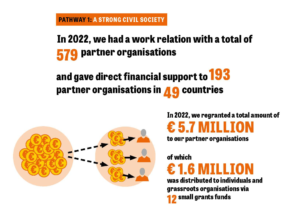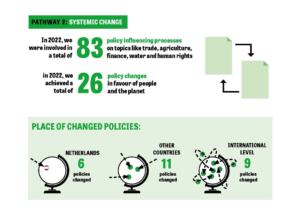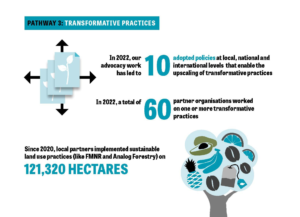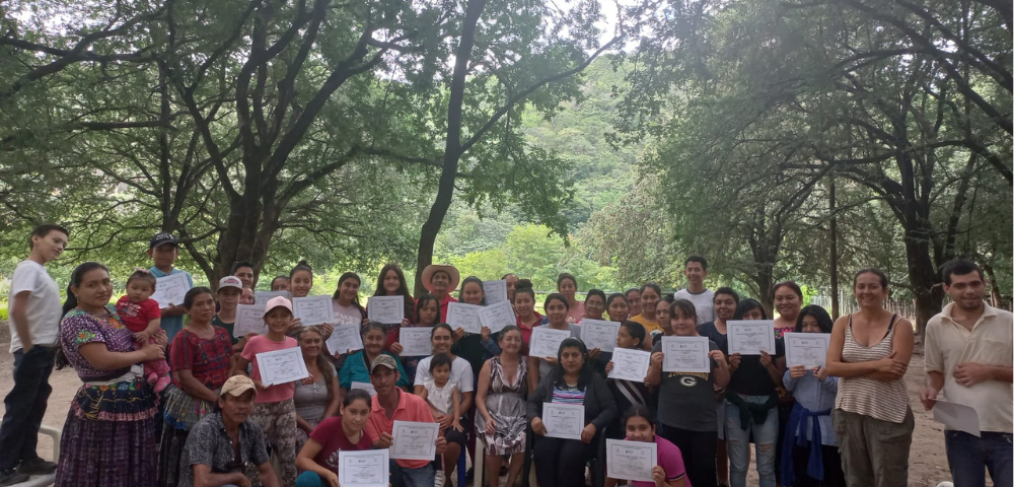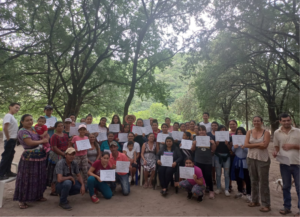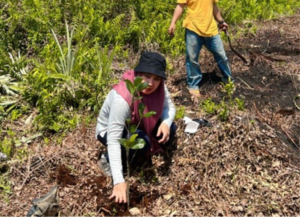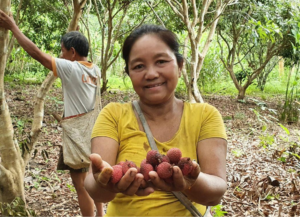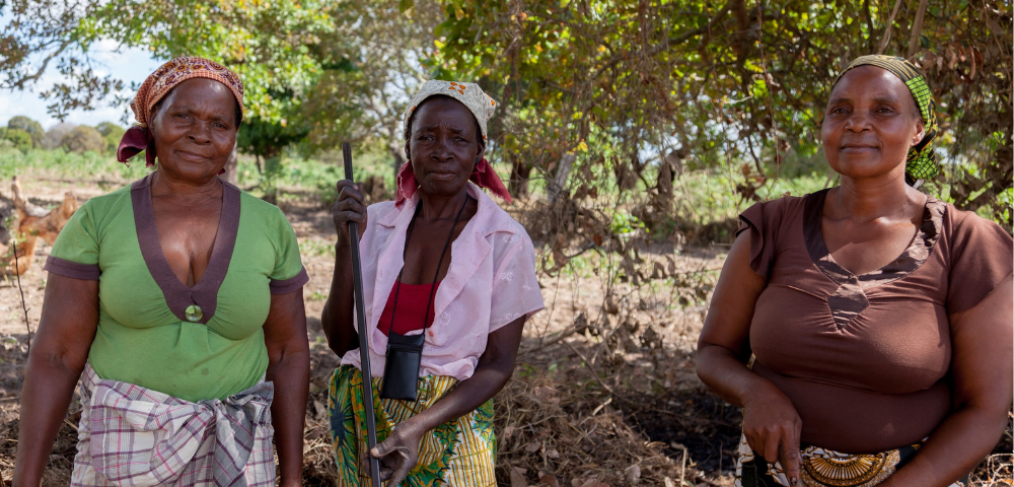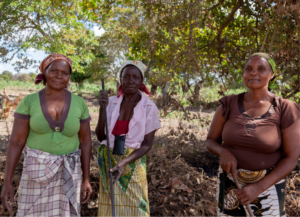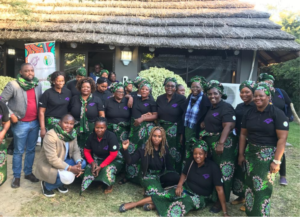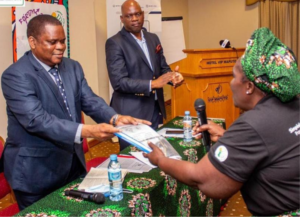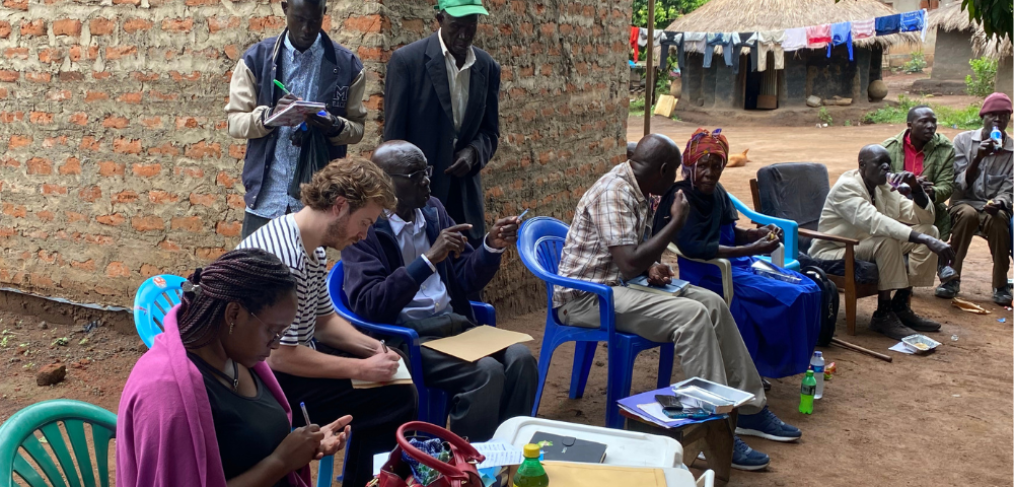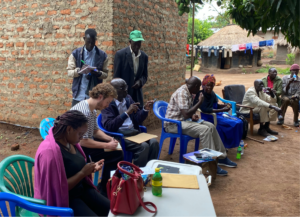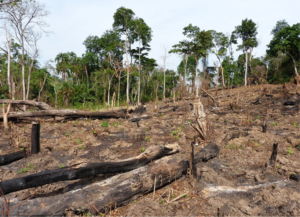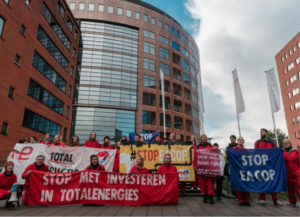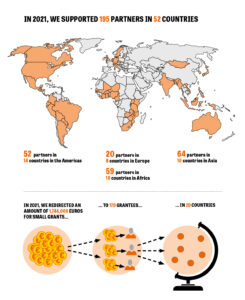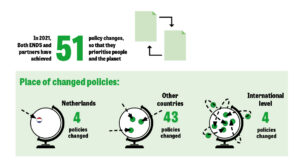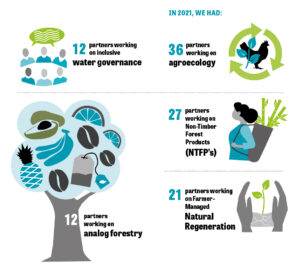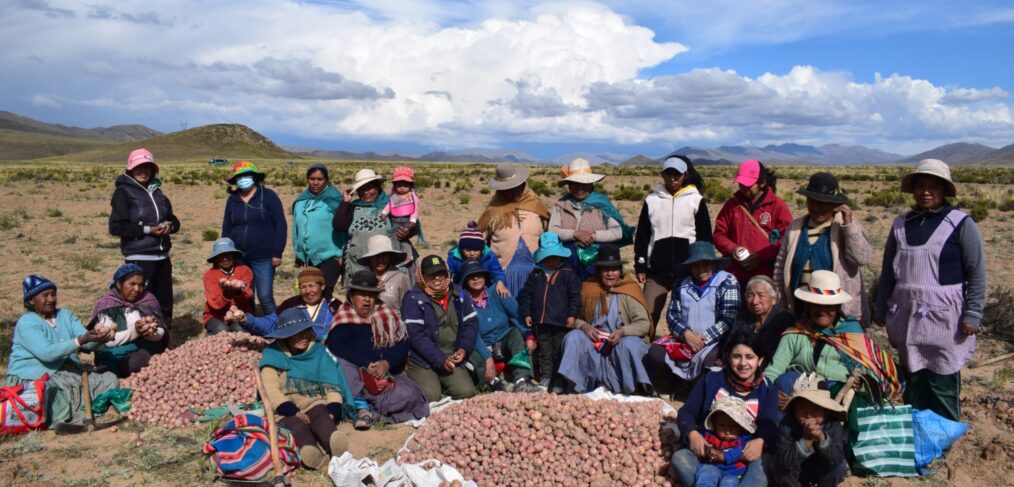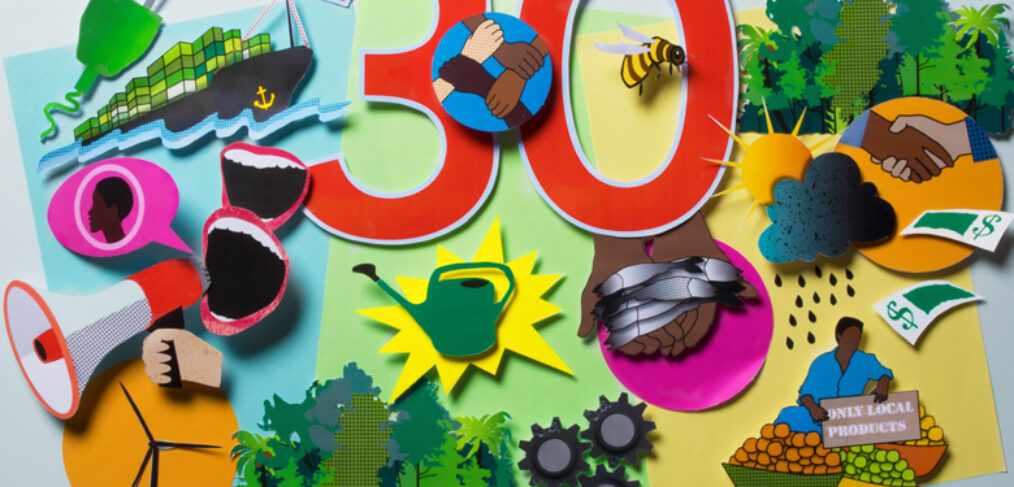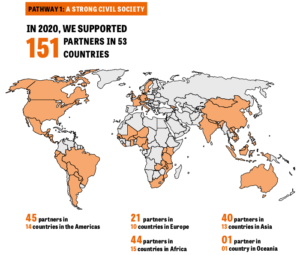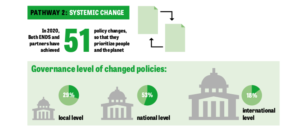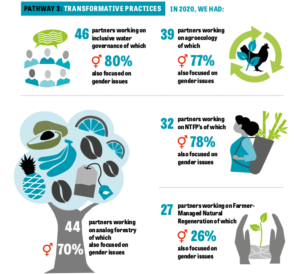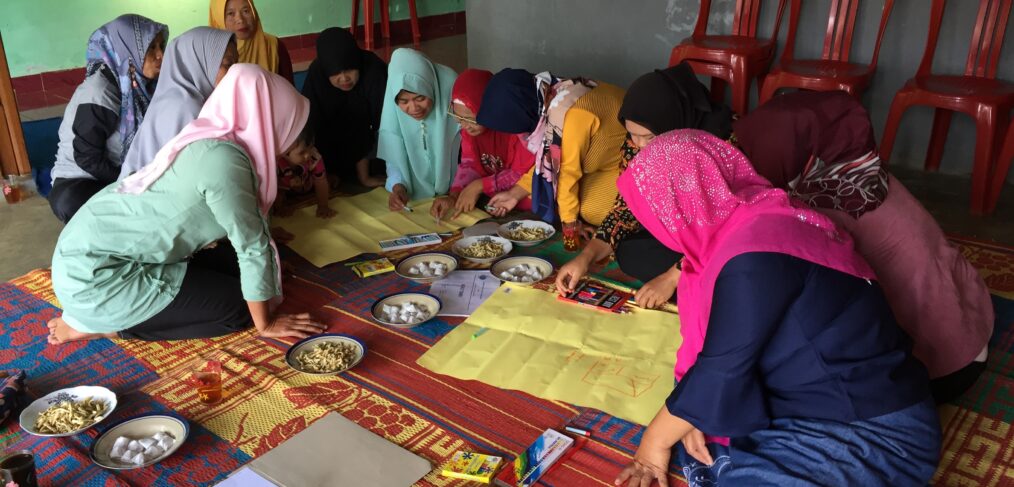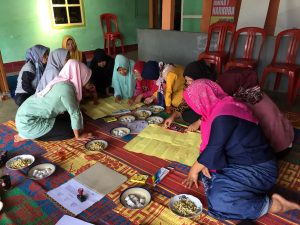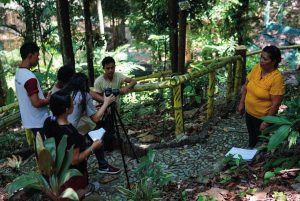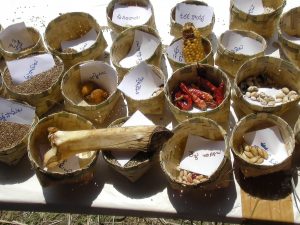We started 2022 with ideas and energy. We were relieved that the pandemic seemed nearly under control. We were excited about having made strides in increasing support for transformative practices, like agroecology, which strengthens community resilience and contributes to stable supplies of food in times of crisis. And we were buoyed by the crucial breakthrough at the UN climate talks in Glasgow, where a large group of wealthy countries, including the Netherlands, and key international financial institutions, pledged to end public funding for new fossil projects abroad by the end of 2022. This was an enormous victory for Both ENDS and our many partners and allies worldwide, who have been working together for decades for fossil free public finance.
And then the next crisis hit. In February, the geopolitical context suddenly and profoundly shifted when Russia expanded its occupation of Ukraine into a full-scale war. As in case of the Covid crisis, we again saw how a sudden shock to the global economic system has direct and severe consequences on people’s access to energy and food, as well as on civic space and human rights. Along with many others, we’ve been warning for years about the risks of our dependence on fossil fuels and industrial agriculture, and the danger of long and unsustainable global supply chains dominated by a few companies.
SECURITY DEPENDS ON A JUST TRANSITION
We have talked about these problems again and again, and our experience in 2022 confirms that it’s critically important to continue to do so. Everywhere we go, in every conversation we have, Both ENDS highlights the systemic character of the many crises we are facing and the consequences for people and planet. Together with diverse civil society organisations, social movements, scientists, parliamentarians and policymakers, Both ENDS continues to work and advocate for a just transition. In this, we are inspired by the many people we collaborate with, such as those in Uganda who, despite very difficult circumstances, are tirelessly advocating for a socially just, sustainable energy strategy. They are raising awareness and advocating for community-driven clean energy solutions, such as off-grid solar energy.
As yet another global food crisis loomed in 2022, we also continued to advocate and work for food system transformation. Worldwide, there are countless examples of local food producers engaged in socially just and ecologically sustainable food production. During the Covid pandemic, we saw confirmation of what we already knew: these holistic practices are best suited to ensure food and nutrition security, and to strengthen economic, climate and community resilience. They deserve much more support, both in terms of policy and funding.
In dialogue with a variety of actors, including Dutch policymakers, international financial institutions, banks and funders, we continued to urge relevant actors to take effective action to prevent hunger by supporting and investing in local food producers, especially women, and agroecological practices. Although there is more work to be done, our message is increasingly being heard. There is growing recognition by policymakers in the Netherlands, in Europe, and at the international level that investing in people’s food security requires investing in people.
As part of the GAGGA Alliance, we are drawing attention to the leading role of women in implementing effective and sustainable measures to adapt to and mitigate climate change, and calling for more recognition, political support and funding for their work. We were pleased to make great headway in 2022, including in fruitful dialogue with a number of donors. In our efforts to mobilise more resources, GAGGA was delighted to receive two new grants. A generous extra project grant from the Dutch Postcode Lottery focuses on flexible funding to strengthen community-driven, women-led systems of resilience and autonomy, building on an initiative launched during the pandemic. A three-year grant from the Ford Foundation enables GAGGA to provide flexible financial support to women and girl environmental human rights defenders to address structural violence.
EXAMINATION OF POWER
As a Dutch organisation based in one of the world’s wealthiest countries, Both ENDS aims to be continually alert to how we hold and use our power, both in the context of our relationships with partners in the Global South and with each other. We recognise that power relations are a constant factor in our work, and we want to improve our understanding and awareness of what this means, while ensuring that we are maximising our efforts to share power. To that end, we embarked on a new, ongoing learning process in 2022 focused on ‘Examination of Power’.
The principle of shared power is at the core of our theory of change and of Both ENDS as an organisation. In recent years, much work has been done to make Both ENDS more united, strategic, and inclusive. Our self-organised organisational system has solidified: staff members have a clear understanding of what they can expect from the organisation and from each other, and what is expected of them. We have found new ways to enable people to grow within the organisation, with more staff members engaged in external communications, outreach, and partnership building. Of course, an organisation’s health is always a work in progress, and we continue to keep strengthening the organisation collectively.
DOING WHAT WE DO BEST
Without a doubt, the best part of 2022 was being able to resume our regular work – to connect in person with our partners, and to facilitate their engagement in important dialogues and decision-making processes. At an event in November, we brought together over 150 people – including staff of Dutch pension funds, asset fund managers, and policymakers – to see the remarkable documentary The Illusion of Abundance, which tells the stories of three women environmental human rights defenders fighting at great risk to defend communities against corporate misconduct. After the screening, Carolina de Moura, a GAGGA partner from Brazil and one of three women defenders featured in the film, told the audience about her efforts to hold the mining company Vale accountable for human rights and environmental abuses, including the Brumadinho dam collapse. She insisted on the urgent need to stop investment in such companies and projects. Listening to Carolina, it is painfully clear that we have an important job to do. We can — and we must – transform global value chains.
Ensuring that people like Carolina can take centre stage and make their voices heard is one of the things Both ENDS does best. It is our job to use our power by sharing our power – to connect people, to connect issues, to challenge decision-makers to do better, to show a way forward. Looking ahead, we aim to develop new relationships to ensure our financial stability, and that of our partners worldwide who, together with us, are creating space, power and momentum at both ends of the globe, in both North and the South, to change our broken system once and for all.
Danielle Hirsch, Director
Paul Engel, Chair of the Board

